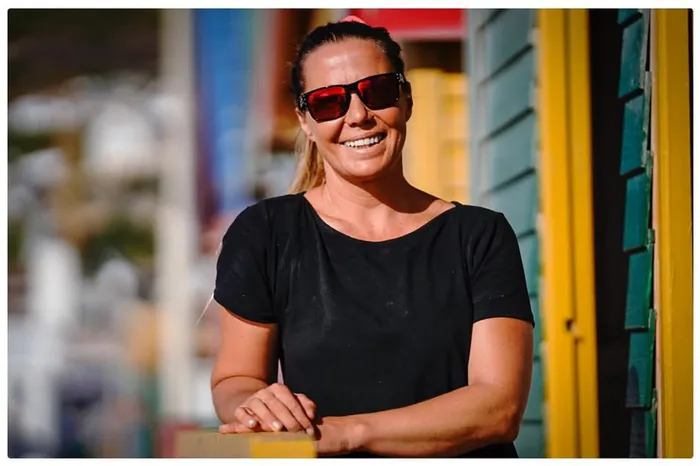Surf therapy helps disabled children, study finds

Roxy Davis, founder of the Roxy Davis Foundation, earned her PhD in health and rehabilitation from UCT, concentrating her research on surf therapy for children with disabilities.
The benefits of surf therapy for disabled children is the focus of a PhD thesis by nine-times South African world champion surfer Roxy Davis.
In September, Davis, the founder of the Roxy Davis Foundation in Muizenberg, earned her doctorate in health and rehabilitation from UCT, focusing on ocean-based therapy.
Her thesis, A World of Possibilities: An exploration of experiences of children with disabilities’ participation in a surf therapy programme in South Africa, looks at how surf therapy can enhance the mental, emotional, and physical well-being of children with disabilities.
Through her foundation, which has long championed surf therapy and adaptive surfing, Ms Davis provides free clinics to those with physical and intellectual disabilities.
Her research, she said, had started in 2019 as a Master’s study.
“It was initially interviews with five children participating in a surf-therapy programme, which allowed their first-person narratives to become a central theme. I also interviewed parents and professionals who work with the children. We realised very early on in the study that the data was very rich, and it was a far larger study than a Master’s.”
Ms Davis said she had always had a deep connection to the ocean, and her experiences had shaped her research.
“I started surfing at 12 and opened a surf school in Muizenberg at 18. By 2016, we began surf-therapy programmes in Cape Town for persons with disabilities.
“It became clear that children with disabilities in South Africa face many barriers to participation, from education to health-care access. My research stemmed from this need to explore how surf therapy could bridge some of these gaps.”
Her research demonstrated that surf therapy offered more than just physical health benefits, she said.
“Participation supports overall health promotion through mental, physical, social, and emotional health and provides an opportunity for reciprocal healing.”
Ms Davis is now working on a project to address the need for better prosthetic solutions for young amputees in South Africa. Through collaboration with researchers and 3D-printing experts, Sparky (Sustainable Prosthetic Assistance for Resilient Kids in Youthful South Africa) aims to provide prosthetics tailored to the needs of South Africa’s youth.
Reflecting on her achievement, Ms Davis said, “It was certainly a team effort; we can’t achieve very much alone, but together, change can happen.”